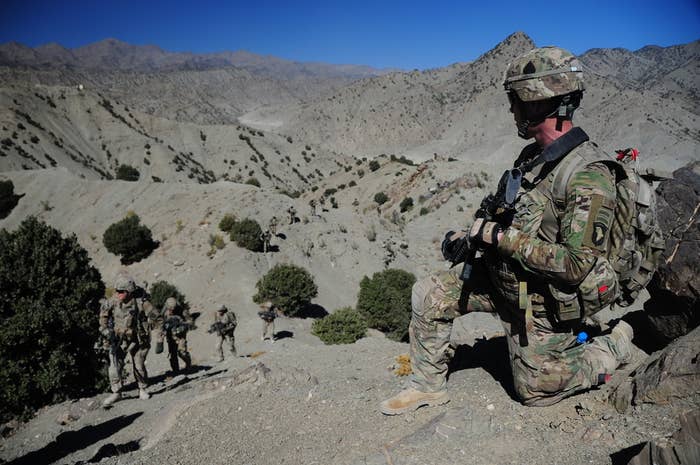
WASHINGTON — U.S. diplomats stationed in Afghanistan are hedging their bets on whether the country's leadership can agree to a White House plan to keep U.S. troops in country after 2014.
Top officials at the U.S. Embassy in Kabul have plans in place outlining how the U.S. diplomatic mission in Afghanistan will continue if the administration cannot strike a deal with Afghan President Hamid Karzai to keep American boots on the ground. The plan to deal with a complete U.S. withdrawal from Afghanistan, known inside the Pentagon and White House as the "zero option," is part of a recently declassified internal State Department inspector general review of the embassy's post-war strategy. Originally completed last December, department officials released a redacted, unclassified version of the review earlier this week.
Top military and administration officials have remained tight-lipped about the possibility of implementing the zero option in Afghanistan for months.
Details of the embassy's plans for a full U.S. withdrawal are an early indicator that Washington's efforts to convince Afghanistan to keep a small contingent of American forces on the ground post-2014 are falling on deaf ears.
Washington, NATO, and Karzai remain deadlocked over the terms of the Afghan post-war plan, known as the bilateral security agreement (BSA). Karzai has refused to sign the U.S.-backed plan so far, something seen as an attempt to build support in the Taliban-dominated areas of the country.
Director of National Intelligence James Clapper told the Senate Armed Services Committee on Tuesday he believed Afghan President Hamid Karzai would never agree to the BSA.
"My own view — and it's not the company view — is that I don't think Karzai is going to sign it," Clapper said.
Without a deal, the White House would be forced to completely withdraw from Afghanistan next year, just as U.S. forces left Iraq in 2011.
Preparations for a full military pullout from Afghanistan were one of several "contingency plans" drafted by embassy officials, according to the review. Other contingency plans were based on scenarios ranging from a limited U.S. military presence to the anticipated postwar U.S. force of 8,000 to 10,000 troops being sought by President Barack Obama.
While the review outlined the various contingency plans and scenarios being considered by the embassy, officials there refused to disclose specifics of the plans to State Department investigators.
Specifically, embassy officials refused to disclose details of the contingency plans that focused on consulates and other diplomatic outposts outside Kabul, according to the review.
"According to the embassy transition director, contingency plans have also been developed that outline options ... for locations outside of Kabul," Norman Brown, the department's acting assistant inspector general for audits, wrote in the review.
Department auditors were "not granted access to those contingency plans. Therefore, [the Office of the Inspector General] is not able to comment on the extent of documented contingency plans," he wrote.
State Department spokeswoman Marie Harf declined to comment on the embassy's postwar planning and its refusal to hand over details of those plans to the inspector general's office.
"I know that we've worked with the [inspector general] very closely on a number of issues in Afghanistan and elsewhere," Harf said.
